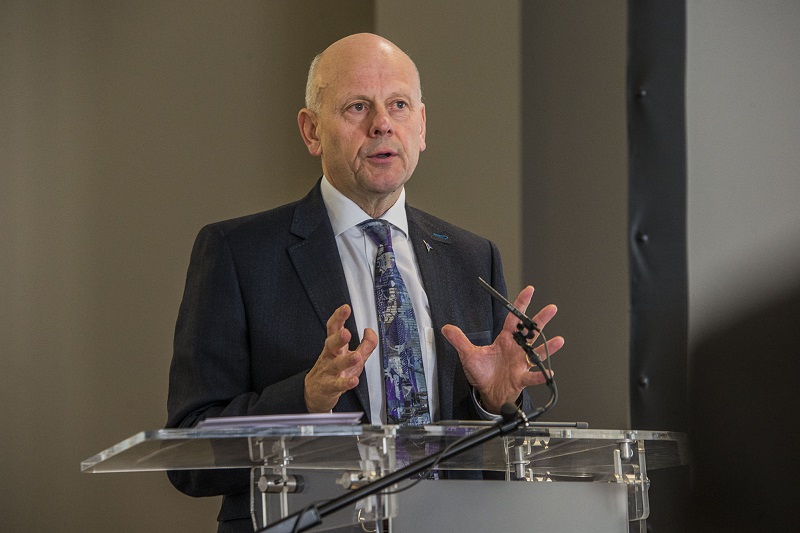
A care home fee fixing cartel in North Wales has been “blown to smithereens” after Anglesey councillors increased rates by up to 25 per cent.
According to social care champions Care Forum Wales, the decision has put huge pressure on Conwy, Denbighshire, Flintshire and Wrexham to follow suit.
The hikes in Anglesey came hot on the heels of similar increases in Gwynedd where the county council’s Cabinet were advised the fees they paid should recognise the true cost of providing care.
Until recently Gwynedd and Anglesey had worked closely with other North Wales councils when calculating the fees for care homes and nursing homes.
In the past, there was a pan-North Wales approach when local authorities were setting the rates.
It’s understood that Wrexham and Conwy councils are conducting reviews of the fees they pay but, according to Care Forum Wales, there’s been “a deafening silence” from Denbighshire and Flintshire.
As a result of the decision by Anglesey councillors, the weekly fee per person for providing Nursing EMI care on the island has increased by 25.3 per cent to £896.19.
That means funding for providing the same level of care is £7,772 per person, per year less in Flintshire than Anglesey.
In Wales the average care home has 40 beds so that equates to a difference of £310,897 for homes of that size.
Care Forum Wales who have compiled a table – that’s been dubbed the League of Shame.
Flintshire County Council are languishing right at the foot of the table and have been awarded a giant, 5ft long wooden spoon by Care Forum Wales.
Mario Kreft MBE, the chair of Care Forum Wales, said: “The decision by Anglesey Council is to be welcomed and is a step in the right direction “
“It’s also clear recognition the toolkit they used is flawed as some of the important areas of cost have calculated as being the same for 12 years and more, which is obviously absurd.
“This fee-fixing cartel in North Wales has been in denial for over a decade.
“Their approach has been to pay the absolute minimum that they were able to get away and I think it has been led by one or two particular strong individuals.
“I think it’s been politically led in North Wales with the aim of reducing the cost of the social care budget. It’s been a race to the bottom in terms of cost and it hasn’t prioritised care.
“That’s why it’s taken the Welsh Government to shake it up by putting in extra funding to cover the cost of the Real Living wage.
Care Forum Wales say the mismanagement of social care over a quarter of a century had led to a postcode lottery of fees and an ever-widening North-South divide.
Relations reached a new low earlier this year when CFW resigned from the North Wales Fee Setting Group – which also included representatives from the six local authorities in North Wales and the Health Board – amid claims that the region’s councils were “deprioritising care” even though they has been given more money by the Welsh Government to pay for it.
A number of South Walian councils had already started bucking the trend and were offering more realistic fees.
Among them was Merthyr Tydfil County Borough Council whose members recently voted for increases of between 16 and 22 per cent.
They agreed the hikes after studying a report by officials of the legal position which meant it was unlawful not to pay fees that took into account “legitimate current and future costs faced by providers”.
Mr Kreft added: “The decision by councillors on Anglesey is a step in the right direction but there’s got to be more because the census is telling us that 20 per cent of our people in Wales are already 65 and over.
“The increases in fees in the residential care categories are very minimal and need to be higher and they know the fees they’re agreed are not sustainable because they run their own care homes as well.
“That means it’s vitally important to have enough capacity to provide social care. We’ve got to have a workforce that’s dynamic and in sufficient numbers for the future.
“Around 20 years ago North Wales councils paid the best fees but over the years that changed so that they became the worst payers but now their price fixing cartel has been blown to smithereens.
“I think Gwynedd did the people of North Wales a great service and the councillors there should be roundly applauded for breaking away from the cartel and now we’ve got obviously this very important news from Anglesey which again is a step in the right direction.
“We know that Wrexham and Conwy have committed to conducting reviews but there’s been a deafening silence from Denbighshire and Flintshire.
“Their current position is totally untenable because what it’s really doing is it’s discriminating against vulnerable people.
“Unless the fees are set at a realistic level that reflect the true cost of providing social care, the financial burden will fall upon hard pressed, hard working families to make up the difference because it is illegal for care homes to run at a loss.
“Why should vulnerable people in one part of north Wales be discriminated against when they’re recognised and valued much more in another part of the region? That’s what we’ve been campaigning for years.
“We’ve had very clear policies about wanting a national regulator, wanting national standards.
“Now, it’s imperative we have a national minimum rate for that job that allows us to properly reward the workforce and meet the proper costs and have sustainable services in North Wales well into the future to meet the rising demand that we see and help relieve the pressures on the NHS.”